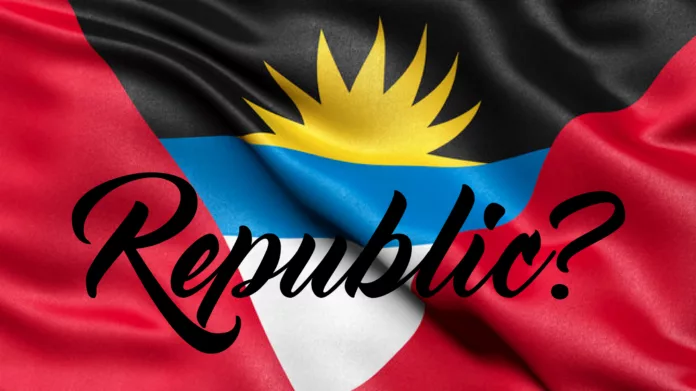As more countries within the region continue to assert the true meaning of their status as independent States, some of Antigua and Barbuda’s most prominent youth leaders are lending their voices to the discourse.
Now, the question was posed to a panel of youth leaders at a recent symposium hosted by the UWI Five Islands campus, whether Antigua and Barbuda should follow through on intimations by Prime Minister, Gaston Browne, that the country will be made to vote – via a referendum – on becoming a republic.
One of said young leaders, the United Progressive Party’s (UPP) Chevaughn Benjamin, told the audience gathered that he is in favour of a referendum on republicanism, but noted that some ‘maturity’ is needed within the country before that step is taken.
“It is a very forward-minded suggestion, and it is also something that I look forward to Antigua and Barbuda [becoming a republic] one of these days. As a youth myself, there will come a point in time where we will have to stand on our own without looking to the Crown as our Head of State.
“However, there is still a lot of [growing up] that we will have to get to first within our country, in terms of our civic discourse and our culture as it relates to our civics before we can get to that point where persons vote, not just based on Party lines, to get either a referendum pushed through or blocked. A referendum can easily be blocked as opposed to what should be for the benefit of all – becoming something that we can say that we have done as a people,” Benjamin said.
Benjamin’s fellow panelist, the Antigua and Barbuda Labour Party’s (ABLP) Carl Christopher, in a reference to determining the will of the people, suggested that the move would be ‘largely symbolic’ – pointing to the failed 2018 referendum on a move to the CCJ as an example the nation has far to go.
“I see the move to a republic for these former colonies of the United Kingdom as largely symbolic. What we had the opportunity to do not long ago, to move our final appellate court to the CCJ, it became largely political and even ugly. I want to talk about that because in the attempts to educate the public by young lawyers, it was not even politicians who tried to capture the message, these young people were attacked and so forth by whomever did not want us to move for whatever reason to the CCJ, and now we are moving the conversation to becoming a republic, and its almost as if we are forgetting something that could actually have some teeth, but we actually have the power to make certain decisions to help people – the move to the CCJ, now we are talking about this move to becoming a republic.
“I would vote to become a republic whether or not my party supports the move and whatever administration is doing it. It is important,” Christopher said.
Meanwhile, the Democratic National Alliance’s (DNA) Chaneil Imhoff – who was the third and final panelist – said that she would definitely vote in favour of Antigua and Barbuda becoming a republic, while agreeing with Benjamin on the need for more education on such matters.
“We don’t believe in opposing just for opposing sake. Not because we are in the Opposition and the government proposes something means we are just going to say, ‘No.’ I witnessed a lot of divisiveness with the CCJ vote, and I think a lot of that came from our political parties, so I think, the onus is on us as future leaders and responsible candidates and political parties to actually understand that some things are much more than red, blue, orange, green. If we truly say that we want the best for Antigua and Barbuda, I think that we should be mature enough to say, ’Listen, this is how we are going to approach this similar to what Barbados would have done, and actually educate our people’ and stop with the opposing for opposition sake, because I know many persons would be ecstatic for a referendum to be called [on our country becoming a republic],” Imhoff added.
Barbados is the latest country to formally separate from the British monarchy – following in the footsteps of Dominica, Guyana and Trinidad and Tobago – and just this week, the St Lucian parliament voted to ditch the London-based Privy Council as the country’s final court of appeal, in favour of the Trinidad-based Caribbean Court of Justice (CCJ).
That country now joins Barbados, Belize, Dominica and Guyana in that regard.

